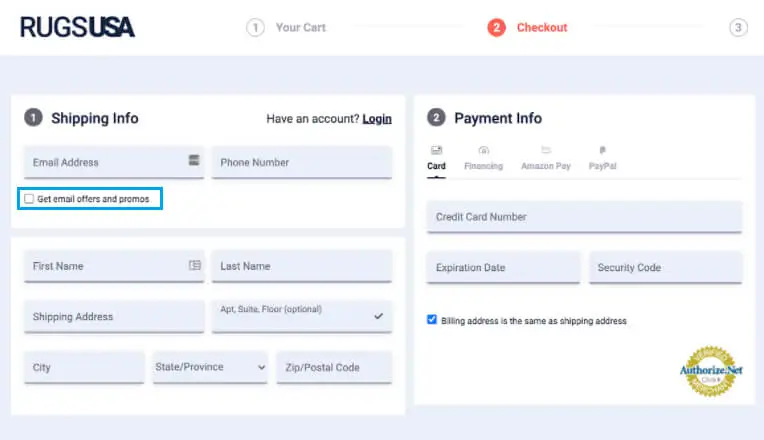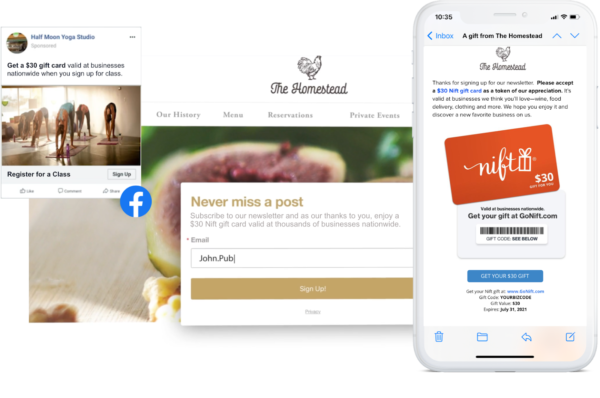20 New Pieces Of Advice For Choosing Email List Sellers
20 New Pieces Of Advice For Choosing Email List Sellers
Blog Article
What Do I Need To Think About When Purchasing A Cpa Email List?
It is important to take into consideration a variety of aspects when purchasing the CPA email list. This will ensure that the list you purchase is of top quality that is compliant with legal standards and relevant to your business goals. Be aware of these elements: Data Quality and Accuracy
Find out where the data came from. The most reliable suppliers typically gather information from directories of professional, databases as well as trade associations. Avoid lists created through scraping, or unreliable sources. They may include inaccurate information.
Verification Process - Check whether the email address list was recently verified. This can reduce bounce-rates and ensure that you're receiving valid email addresses. Check how often this list is updated and cleaned because CPAs may frequently change firms or jobs.
Segmentation/Filters Filters and Segmentation: A CPA List should include options to be segmented by geography (city province or country) or by specialization (e.g. accounting or auditing, or financial planning), number of years in operation, or the size of the company. This can help you increase the efficacy and relevancy of your marketing campaigns.
2. Conformity with Legal Regulations
Data Privacy Laws : Ensure compliance with local data privacy laws, including the California Consumer Privacy Act and the General Data Protection Regulation. Lists should only contain emails obtained legally and with consent.
Conformity with the CANSPAM Act To ensure compliance with the CANSPAM act that governs commercial emails it is crucial that your email list conforms to the CANSPAM Act. It is crucial to offer opt-out options, and avoid making use of misleading subject lines or other content. Non-compliance may lead to legal and financial issues.
Opt In Consent: Be sure you've gotten the email address by way of an opt in consent. It is a sign that recipients who have opted in consent to being contact by third parties. This reduces the risk of complaints about spam. This also improves engagement.
3. Provider Reputation
Examine the reputation of the service. Check out the testimonials of customers, case studies and reviews to get an idea for what previous customers have been through. Established businesses are more likely to have accurate data.
Transparency - The provider must be transparent about how the data is gathered and maintained. If the provider cannot clearly explain how they collect data that's a red flag.
Customer Support: A reliable and dependable support service is crucial in case you need assistance making lists, troubleshooting issues or understanding compliance regulations. Support from a professional will help you save time and money throughout the campaign.
4. Cost and Return on Investment
Pricing Models. Different providers offer different pricing models. Some charge by the contact, while others offer the option of a subscription or flat rate. Examine ROI expectations against costs and balance the quality and price of the selection.
Refund Policy: Learn if there is a policy that allows for replacements or refunds when there is a problem with a set of emails were incorrect or in error. A guarantee gives you peace-of-mind.
Don't just focus on the cost. It may be tempting to choose a less expensive list, but if its quality isn't good this could lead to low engagement and high bounce rates. Pay for lists that offer value through data accuracy and segmentation options.
5. Ownership and usage of data
If you're looking to purchase a list, you should determine if the list is only for a one-time event or you will have the list for yourself. While mailing lists that are solely for one-time use might cost less and you'll have more freedom for long-term campaigns when you own the list.
Shared lists: Determine whether your email list is private or shared. shared lists: Determine if this email list is yours only or is shared with several buyers. Shared lists could cause audience fatigue if the recipients are bombarded by marketing emails from other companies.
6. Data Integration and Format
CRM Compatibility. Check that the list was provided in a CSV or Excel format. This will make it easy to manage of data and its transfer.
Ease of Use: Examine the ease at the data you can segment and managed, as well as integrated into your system. A well-organized listing can help make personalization and targetting more efficient.
7. Ethical Besorgnization
Relevance of content: CPAs can be working professionals with a lot of responsibilities. Therefore, it's essential to send them relevant and useful content. Inadequate messages could damage your brand's image or increase spam complaints.
Avoid sending too many emails: Be aware of how often you send emails to the people who are on your list. Over-communication can lead to unsubscribes or spam complaints, which could negatively impact your sender reputation.
You can also read our conclusion.
To ensure that your investment is profitable, you should consider the quality of data and legal compliance when purchasing an email database from an CPA provider. Segmentation, targeting, and ethical practices will increase the engagement of your customers, their ROI as well as brand perception. Follow the pro cpa email list for website recommendations.
What Factors Should I Consider When Purchasing An Oncologist's Email List?
Consider the following elements prior to purchasing an email list of oncologists. These can help you ensure that your list is a good quality, targeted and legally legal. These are the most important considerations. Quality of data and accuracy
Source of Data: Make sure that the email list you are using is proven reliable and trustworthy sources, such as medical directories, professional associations or databases of healthcare. Avoid lists that come from unreliable or unverified sources, as they may have outdated or incorrect details.
Verification Method. The list service provider has to have a solid verification process to ensure that the email addresses provided are correct, valid and active. The list provider should regularly cleanse and update the list to get rid of duplicate or invalid contacts. This will ensure higher deliverability rates.
Segmentation: A reputable oncologist email list must provide segmentation options. Being able to filter the list by subspecialties (e.g., pediatric oncology, surgical oncology, hematology-oncology), geographic location, years of experience, or institution allows for more targeted outreach, increasing the likelihood of engagement.
2. Legal Regulations
Data Privacy Regulations - Ensure that the email list is in compliance to data privacy laws including the General Data Protection Regulation in Europe and the California Consumer Privacy Act in the U.S.A. Email addresses must be collected and handled legally while respecting consent and data privacy.
CAN-SPAM Act Compliance: When you are running U.S.-based campaigns, make sure that the list complies with the CAN-SPAM Act, that governs commercial email messages. This includes providing the option to opt out of your email messages, and using accurate subject lines, and not misleading recipients with deceptive information. Failure to comply with the law could result in penalties, and your reputation could be damaged.
Opt-In Consent - Make sure that the addresses on the list have been gathered with the consent of the user. Oncologists need to have given consent to receive marketing messages. This ensures compliance with privacy laws and reduces risk of legal issues or complaints about spam.
3. Provider Reputation
Reputable Provider - It's essential to buy your list from an industry expert with a strong reputation. To confirm their credibility, you can look up their past records reviews, go through testimonials, or case studies. The established providers provide a more precise legal compliant lists.
Transparency: Providers need to be transparent regarding how they source their data, the frequency at which it's updated and what verification methods they employ. Lack of transparency is a big red flag that may indicate poor quality data.
Customer Support - Pick an organization that provides prompt support to you in case you require assistance with integration segments, integrating, or ensuring compliance with the regulations.
4. Cost and ROI
Pricing Structure: Know the pricing model, whether it's based on contacts or a fixed cost subscriptions. Price should be compared to your marketing budget, and the ROI (return on investment).
Refund or Replacement policy: A reliable service provider will offer either replacement or refund policies for incorrect or out of date emails. Be sure to read the terms of the purchase prior to making a purchase in order to protect your investment.
Value for money: Don't just concentrate on the cost. While a cheaper list may be appealing, if this leads to low engagement or poor deliverability your campaign might suffer. Be sure that the information is correct and pertinent.
5. Data Usage & Ownership
If you are unsure whether it's a single-use list or if ownership permits for continued use. If you're planning on running multiple campaigns, buying the list will provide you with more flexibility and a longer-term benefit.
Exclusive vs. Shared Lists - Determine whether you are the only purchaser of the list or the list is offered to other buyers. Exclusive lists are often more beneficial since they can reduce the exhaustion of your audience, leading to more engagement.
6. Data Format and Integration
Integration with CRM: Make sure that your list can easily be integrated into your Customer Relations Management (CRM) or email marketing tools. The list should come in a format that can be simple to integrate, such as CSV or Excel.
Easy Segmentation: Your CRM should make it easy to manage and segment the list. It will be simpler to personalize your marketing if you can filter quickly using criteria like the location of your business or a subspecialty within oncology.
7. Ethical Concerns
Relevance: Oncologists are highly special fields, and they have hectic schedules. Your message should be tailored to their specific needs or preferences. This could include medical equipment or continuing education. Relevant emails can lead to poor engagement and a negative image of the brand.
Beware of Spam. Don't over-email or send unwelcome email messages. They could result in spam complaints. Maintain a reasonable email frequency to keep your customers active without overwhelming them.
Conclusion
If you are purchasing an email list of oncologists put a premium on accuracy of data. Be sure that the segmented list is properly designed and validated to reach the right the right audience. In analyzing these aspects, it's possible to create a successful, compliant strategy for outreach that increases engagement, while delivering excellent results. See the pro oncologist email list for website examples.